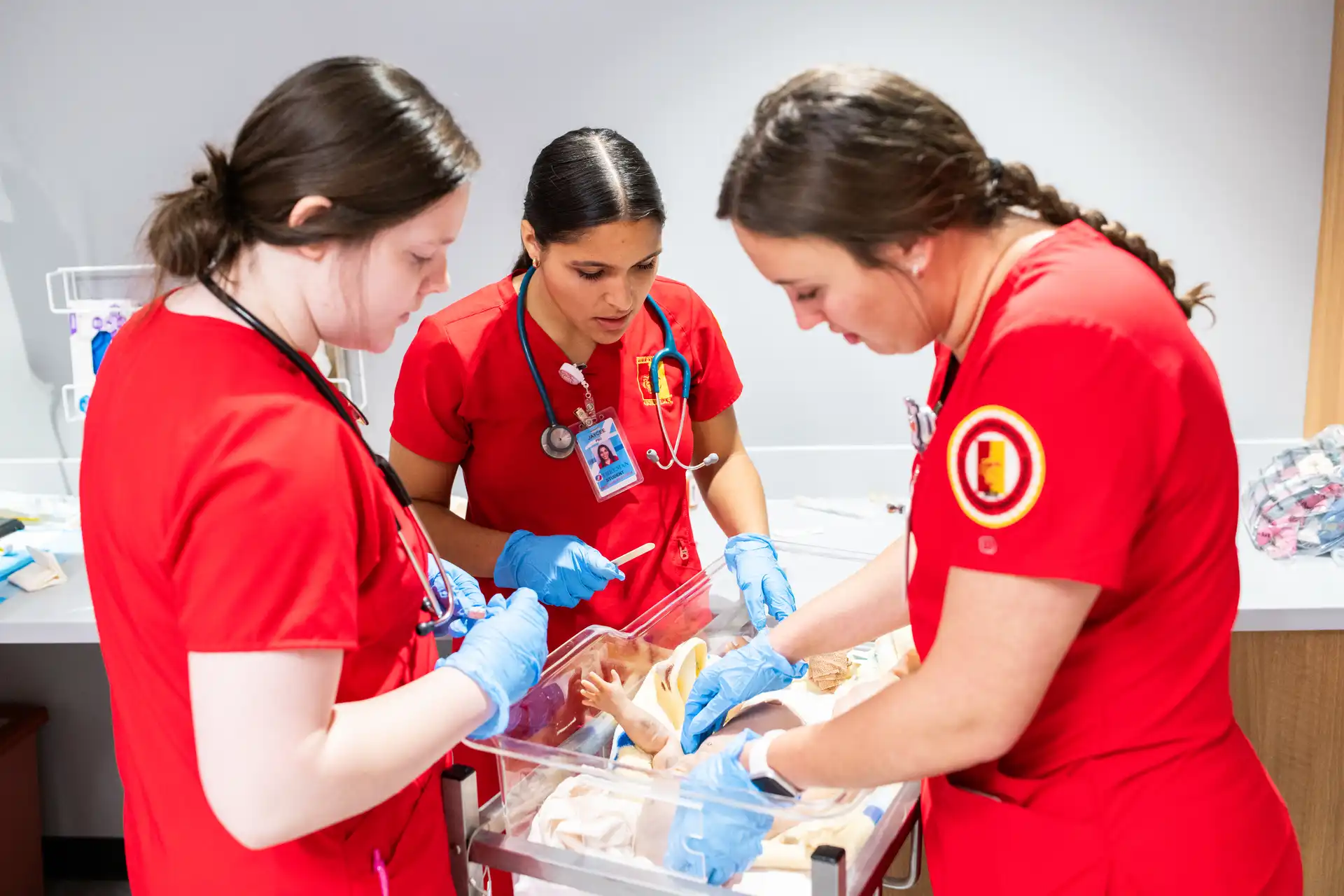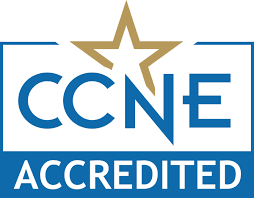Nursing Major
Are you compassionate, calm, and clear-headed when people are feeling their worst? Earn your Nursing degree at Pitt State to promote wellness, prevent illness, and provide care.Experiential Learning
Our students learn by doing. Through simulated lab activities, you gain practical experience in routine procedures and uncommon scenarios. Place an IV, aid in the delivery of a breached baby, react to the effects of a natural disaster, and more!
Committed to Your Graduation
Our faculty are committed to student success. The retention rate of BSN students is 97.6% - we make sure no student is left behind. Earn your degree armed with the tools to take on the registered nurse licensure exam (NCLEX).
Community Initiatives
Give back to the community. Our BSN students create educational presentations for elementary school students at the Teddy Bear Clinics and coordinate vaccine clinics, blood drives, and fitness testing.
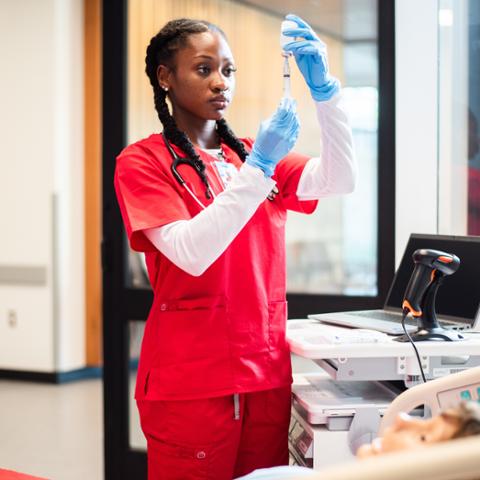
Put on those red scrubs and practice, practice, practice. The application of technical skills is integrated into all BSN courses.
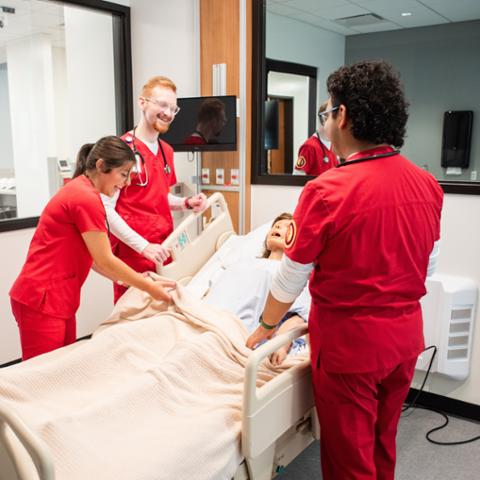
Learn on high-fidelity simulators paired with state-of-the-art technology. The School of Nursing prioritizes advancing its facilities.
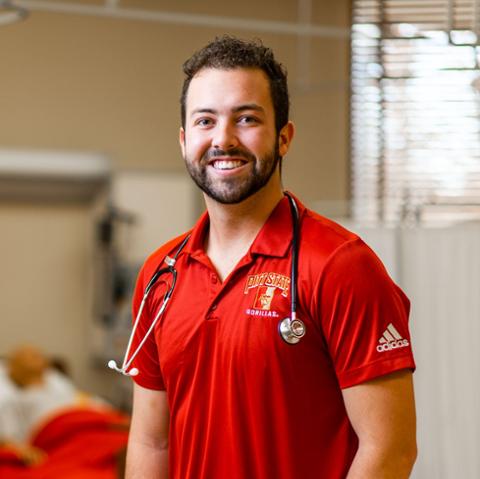
Gain training in care facilities across the Four State Area, from hospice to home health. Train with expert mentors who have practiced in the medical field for years.
Training the Next Generation of Health Care Leaders
Nursing students, Chloe and Charis, on how to prepare for clinical rotations.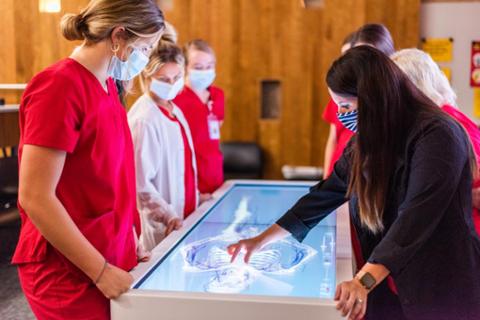
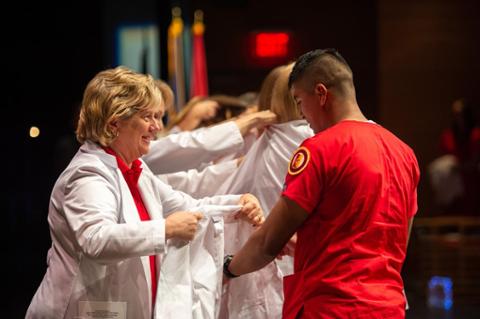
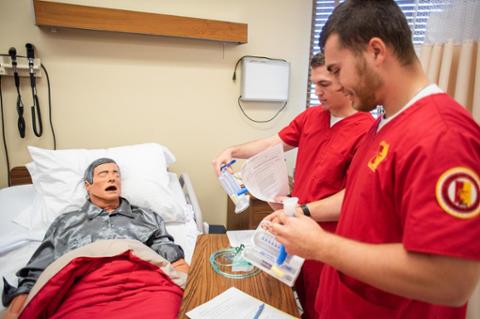
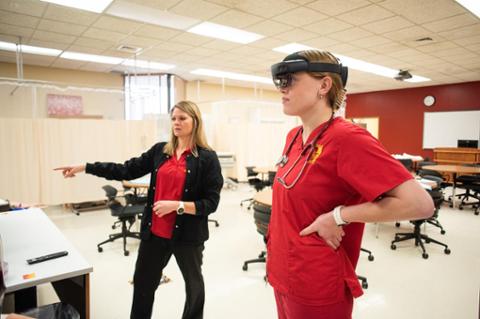
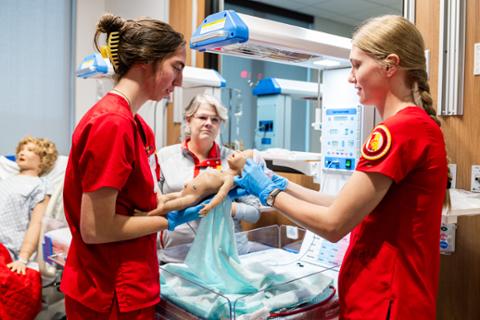
clinical rotation hours completed to graduate
graduation rate of BSN students
3-year average first time NCLEX pass rate
job placement rate among surveyed graduates over several years.
"The simulation hospital is taking our skills to the next level. It's going to help us feel a lot more confident by the time we graduate. It gets me really excited for senior year."
Olivia Chase, Louisburg, Kansas
Nursing Careers
BSN jobs are available and in demand. The median BSN salary is $77,600 for registered nurses. There are many nursing specializations:
- Staff Nurse
- Charge Nurse
- Chief Nursing Officer
- Clinical Manager
- Nursing Director
- Nursing Education
- Case Management
- Discharge Planner
Through clinical rotations and mentorship opportunities, PSU students build a strong network of connections. Regional workplaces that have recruited our graduates include:
- Freeman Health System: Joplin, Missouri
- Mercy Hospital: Joplin, Missouri
- Via Christi Hospital: Pittsburg, Kansas
- University of Kansas Health System: Kansas City, Kansas
- St. Luke’s Hospital: Kansas City, Missouri
- Olathe Medical Center: Olathe, Kansas
- Research Medical Center: Kansas City, Missouri
- Truman Medical Center: Kansas City, Missouri
- Wesley Medical Center: Wichita, Kansas
- Advent Health: Shawnee Mission, Kansas.
As a nurse, a Bachelor of Science in Nursing can open more doors than an Associate Degree. A BSN increases your earning potential and allows for leadership opportunities. It’s a stepping stone to more advanced nursing roles, including nurse practitioner, nurse midwife, clinical nurse leader, or certified registered nurse anesthetist (CRNA).
Nursing students who wish to leverage their degrees to serve in the military start their careers in the Pitt State ROTC. Nursing graduates are commissioned into active duty, the National Guard, and the Army Reserves. In addition to extensive one-on-one mentoring and training, 10 nursing scholarships are awarded to Army ROTC Cadets annually.
Emphases available
Start the path to both your Registered Nurse (RN) license and a BSN degree. Prepare to take the National Council Licensure Examination (NCLEX).
Build on your Associate Degree in Nursing (ADN) and Registered Nurse (RN) licensure to earn your BSN. Prepare for leadership roles in healthcare and improve patient outcomes through advanced nursing skills.
Additional information
Catalog – see catalog for the School of Nursing
